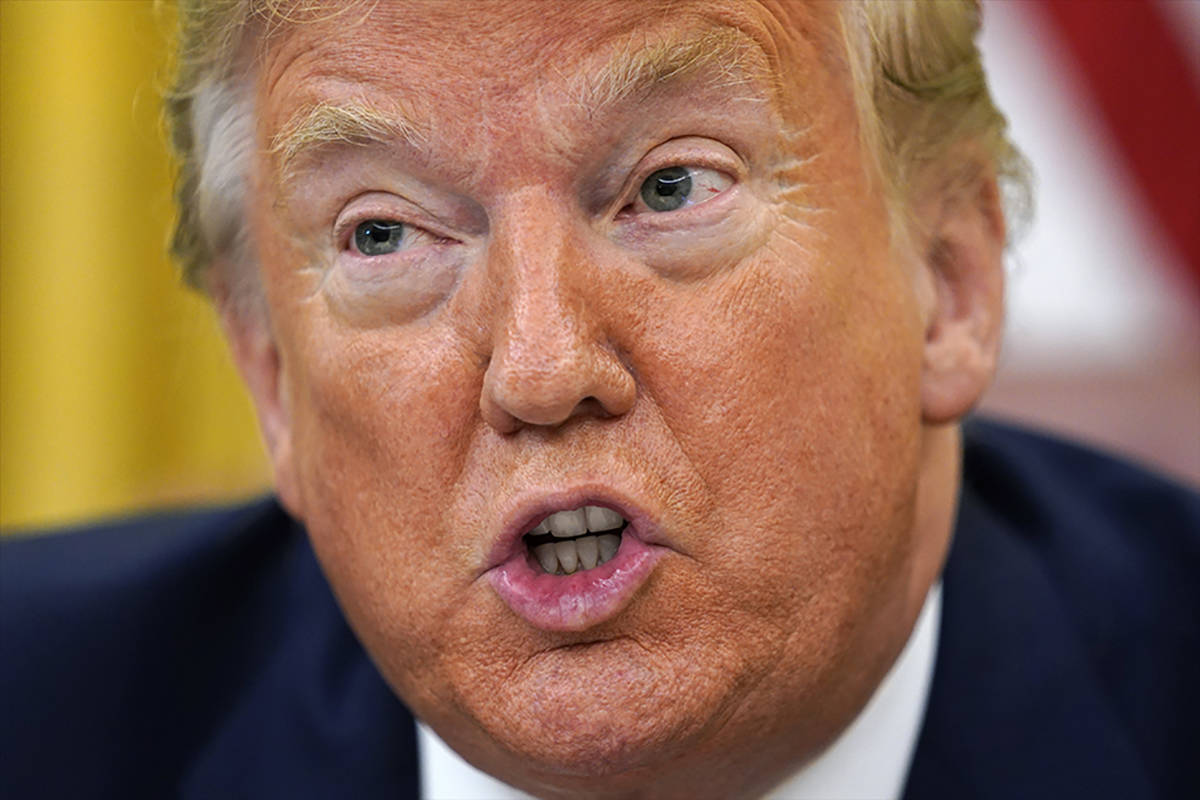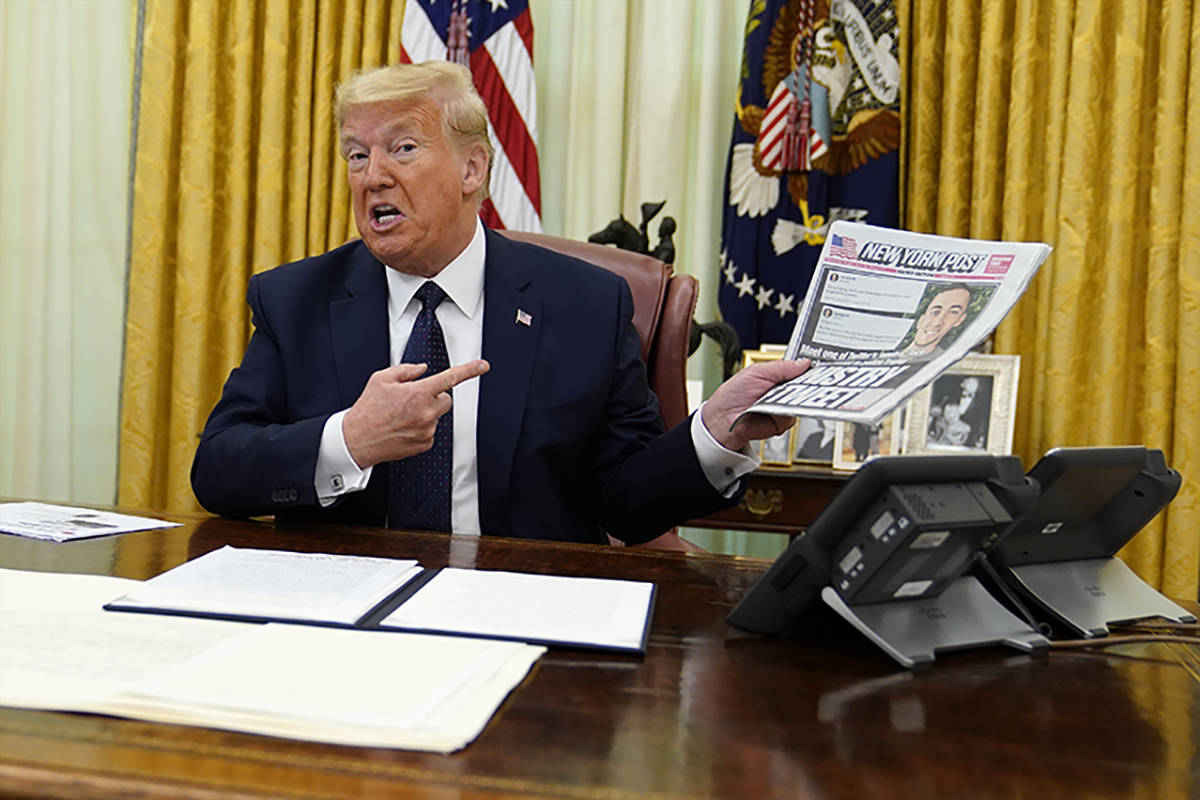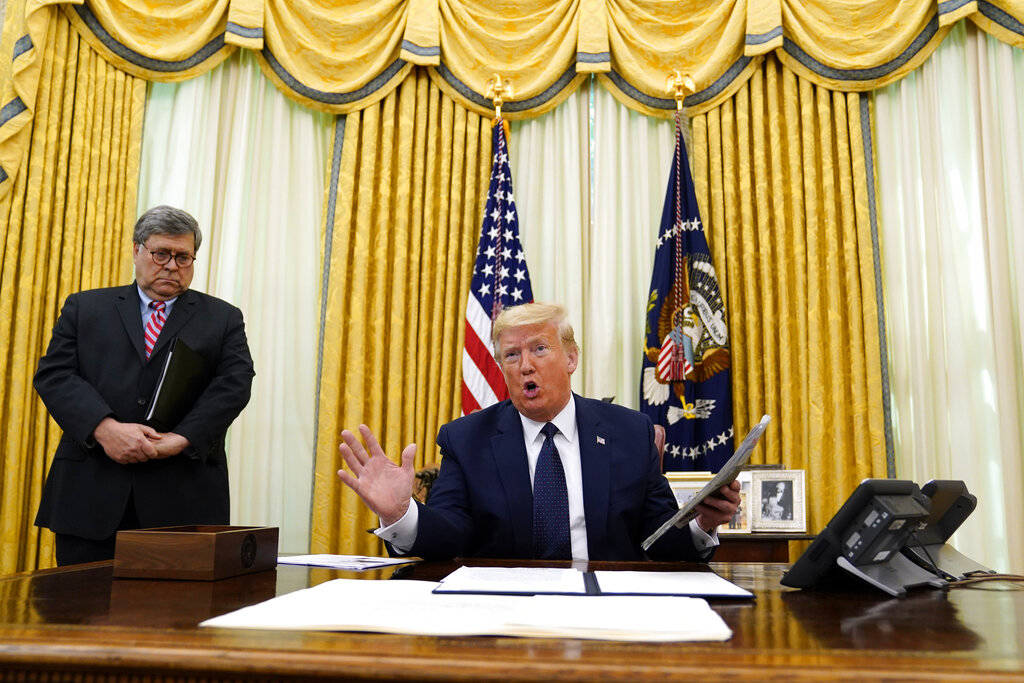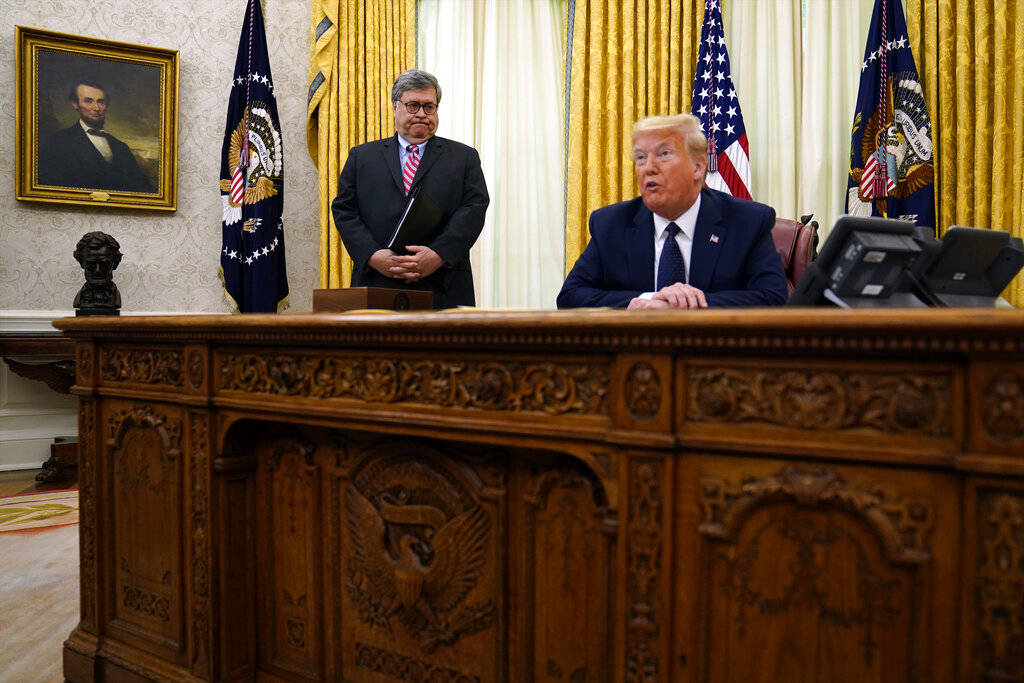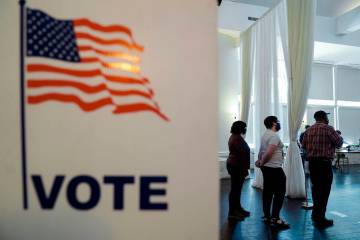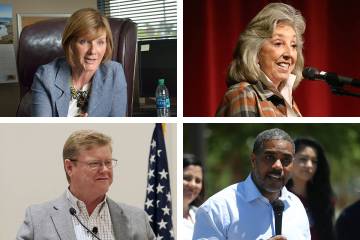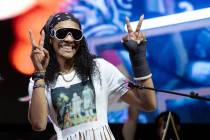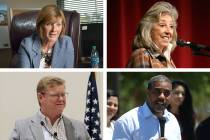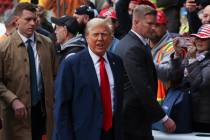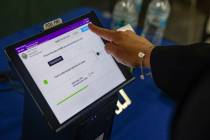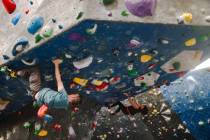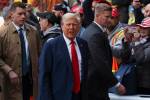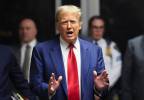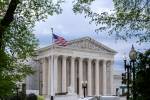Trump signs executive order to ‘regulate’ Twitter
WASHINGTON — President Donald Trump signed an executive order titled “Preventing Online Censorship” on Thursday, one day after Twitter fact checked two of his tweets.
“My executive order calls for new regulations under Section 230 of the Communications Decency Act to make it that social media companies that engage in censoring or any political conduct will not be able to keep their liability shield, that’s a big deal,” Trump told reporters as he signed the order in the Oval Office with Attorney General William Barr standing at his side.
Barr accused social media giants of engaging in “bait and switch” tactics that let them build their empires as neutral platforms only to act as “publishers” when they had the lion’s share of the market.
American Civil Liberties Union senior legislative counsel Kate Ruane responded, “Much as he might wish otherwise, Donald Trump is not president of Twitter. This order, if issued, would be a blatant and unconstitutional threat to punish social media companies that displease the president.”
“The president also has no authority to rewrite a congressional statute with an executive order imposing a flawed interpretation of Section 230,” Ruane added. “Section 230 incentivizes platforms to host all sorts of content without fear of being held liable for it. It enables speech, not censorship.”
Alternative to media
Asked if he was thinking of deleting his Twitter account, which has amassed more than 80 million followers, Trump told a reporter, “If you weren’t fake, I would not even think about it,” adding that he would leave Twitter “in a heartbeat.”
Trump’s relationship with Twitter hit some rocks during the week after Trump posted tweets that suggested that MSNBC host Joe Scarborough may have been involved in the death of a former staffer when Scarborough was a member of Congress in 2001. Trump suggested that Scarborough and aide Lori Klausutis may have had an affair.
New York Times columnist Kara Swisher called out Twitter for not deleting the “vile” conspiracy theory about Klausutis, cited inaccuracies in Trump’s posts and suggested that Twitter adhere to its own rules.
Swisher also posted a letter in which widower Timothy Klausutis asked Twitter chief executive Jack Dorsey to delete Trump’s tweets about his late spouse, as “the president of the United States has taken something that does not belong to him — the memory of my dead wife.”
Dorsey did not comply. Twitter released a statement to Variety that expressed sorrow about the pain Trump’s tweets had caused to the family.
On the same day, Trump complained on Twitter that California Gov. Gavin Newsom was sending ballots to “millions of people, anyone living in the state, no matter who they are or how they got there.” California sent ballots only to registered voters, not anyone living in the state.
Twitter tagged those two posts under the handle @TwitterSafety “to enforce our civic integrity policy. We believe those Tweets could confuse voters about what they need to do to receive a ballot and participate in the election process.”
During a news briefing before Trump signed the order, press secretary Kayleigh McEnany argued that California’s “mass mail-in system,” put in place to protect voters from the coronavirus, enables fraud. McEnany also charged that with its liberal bias, Twitter checks conservatives but not liberals.
McEnany also referred to a Review-Journal story last week about Nevada’s mailed ballots. “There were ballots — because Nevada mass mailed them out to voter rolls that were piling up in apartment complexes — outside of apartment complexes in Las Vegas, sitting around in trash cans. This is how we’re protecting ballots? It’s extraordinary,” she said.
Government censorship?
Information Technology Industry Council CEO Jason Oxman said in a statement: “Today’s executive order expresses that the First Amendment is the bedrock of American democracy, while at the same time threatening to undermine it by endorsing government censorship of speech.”
Trump’s surprise 2016 victory left Silicon Valley leaders anguished over how they might have contributed to the victory of a president for whom few of them voted. Still, they have resisted the specter of federal regulation, as they instead promulgated rules meant to maintain some civility and accuracy.
Facebook founder Mark Zuckerberg suggested a lighter touch when he told Fox News’ Dana Perino on Thursday, “I just believe strongly that Facebook shouldn’t be the arbiter of truth of everything that people say online.”
House Speaker Nancy Pelosi dismissed that notion, arguing “they don’t want to be regulated, so they pander to the White House.”
The Washington Post counted 18,000 false or misleading statements made by Trump as of April 2020.
There is NO WAY (ZERO!) that Mail-In Ballots will be anything less than substantially fraudulent. Mail boxes will be robbed, ballots will be forged & even illegally printed out & fraudulently signed. The Governor of California is sending Ballots to millions of people, anyone.....
— Donald J. Trump (@realDonaldTrump) May 26, 2020
Contact Debra J. Saunders at dsaunders@reviewjournal.com or 202-662-7391. Follow @DebraJSaunders on Twitter.



